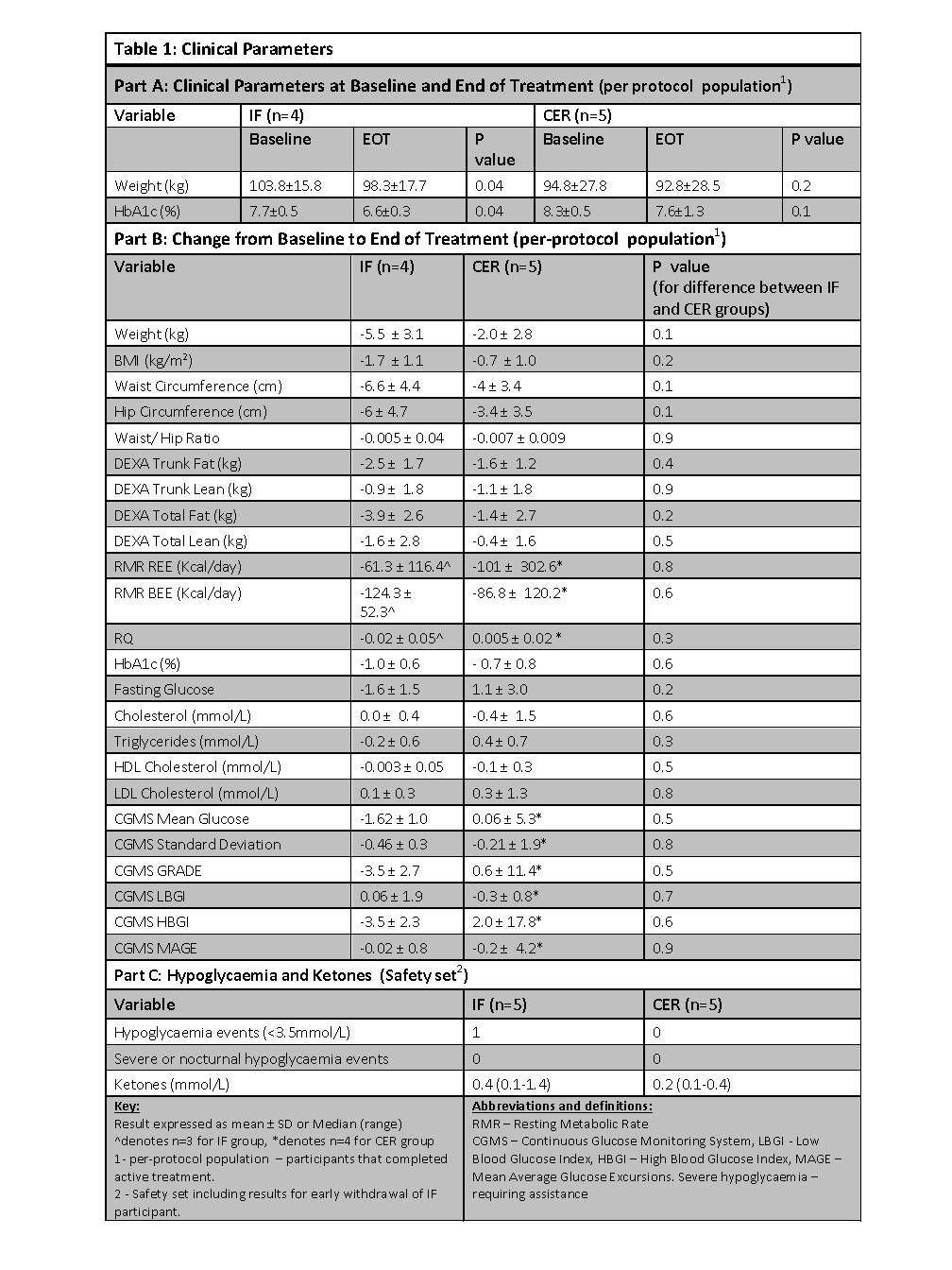Intermittent Fasting: appears an effective and safe strategy for weight loss and metabolic control in Type 2 Diabetes (#241)
Overweight and obesity is observed in more than 80% of individuals with Type 2 Diabetes (T2DM). This excess weight can result in poor metabolic control that can be improved through weight loss. While Continuous Energy Restriction (CER) is the standard of care for weight loss, it requires continual vigilance and often results in poor adherence. Intermittent Fasting (IF) has been shown to be an effective option for weight loss in people without diabetes. In this pilot study we investigated the effectiveness and safety of IF compared to CER in individuals with T2DM.
During the 12 week intervention, participants randomised to CER (n=5) were instructed to reduce their energy intake by 30% everyday in accordance with the Australian Guide to Healthy Eating, while those randomised to IF (n=5) were instructed to consume 3 very low energy diet (VLED) shakes a day (~2,500 kJ/day) on any 2 days a week and to eat to appetite on other days.
At end of treatment (EOT) both IF and CER were effective in achieving weight loss and improved metabolic control. Relative to baseline, the IF group displayed a statistically significant decrease in weight and HbA1c p
Both interventions were safe with neither group reporting severe or nocturnal hypoglycaemic episodes. Ketone concentrations remained within the clinically acceptable range for both the IF and CER group (Table 1, Part C). The safety set includes 1 early withdrawl from the IF arm.
The results of this pilot study suggest that IF is an effective and safe option for weight loss and metabolic control in individuals with T2DM, however a larger trial is required to determine whether IF is superior to CER.
